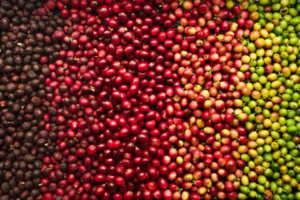Over the years, coffee has grown from a humble beverage to a global phenomenon. It is an integral part of our daily lives and cultures. However, in recent decades, a new movement has emerged that has elevated coffee to new heights – the Specialty Coffee Movement. This movement focuses on the pursuit of exceptional coffee experiences, highlighting unique flavors, ethical sourcing, and sustainable practices. In this article, we will explore the evolution of the Specialty Coffee Movement around the world, from its early beginnings to its current global impact.
The Birth of the Specialty Coffee Movement
The Specialty Coffee Movement emerged in the 1970s and 1980s as a response to the commoditization of coffee. Prior to this period, coffee was primarily viewed as a bulk commodity, and little attention was given to its quality and origin. However, a handful of coffee enthusiasts, roasters, and farmers began to challenge this notion.
One of the pioneering figures in the movement was Erna Knutsen, who coined the term “specialty coffee” in an issue of Tea & Coffee Trade Journal in 1974. She used it to describe coffees with unique flavors that stood out from the crowd. This marked the beginning of a new era for coffee, where taste, origin, and quality took center stage.
Third Wave Coffee: Quality meets Ethical Sourcing
The 1990s and early 2000s saw the movement gain momentum and evolve into what became known as “Third Wave Coffee.” This phase of the Specialty Coffee Movement focused not only on the taste and quality of coffee but also on ethical sourcing and sustainability.
Coffee roasters and consumers started to demand more information about the origin of their beans, encouraging transparency in the supply chain. This led to the rise of direct trade relationships between coffee producers and roasters, ensuring fair prices and better working conditions for farmers.
The Role of Specialty Coffee Shops
As the Specialty Coffee Movement gained traction, an increasing number of specialty coffee shops sprouted up worldwide. These shops became more than just places to grab a cup of coffee; they evolved into hubs of coffee education and culture.
Specialty coffee shops began employing skilled baristas who were trained to extract the best flavors from the beans, mastering brewing methods such as pour-over, French press, and espresso. These baristas played a crucial role in educating consumers about the nuances of coffee and introducing them to new and exciting flavor profiles.
Impact on Coffee-Producing Countries
The Specialty Coffee Movement has had a profound impact on coffee-producing countries, especially those in Central and South America, Africa, and Asia. As demand for high-quality beans increased, coffee farmers were incentivized to focus on growing specialty-grade coffee.
This shift not only improved the economic conditions for coffee growers but also encouraged sustainable farming practices. Many farmers adopted organic cultivation methods, emphasizing environmental conservation and biodiversity.
Global Expansion and Consumer Appreciation
With the growth of the internet and social media, the Specialty Coffee Movement transcended borders and reached a global audience. Coffee enthusiasts and professionals from different countries began sharing knowledge, experiences, and roasting techniques, further fueling the movement’s expansion.
In addition, consumers’ palates evolved, and they started to appreciate the diversity of flavors that specialty coffee offered. Terms like “single-origin,” “micro-lot,” and “cupping notes” became common parlance among coffee aficionados.
Specialty Coffee Competitions and Awards
To recognize and celebrate the exceptional work of coffee farmers, roasters, and baristas, various specialty coffee competitions and awards were established. One of the most notable competitions is the World Barista Championship, where skilled baristas from around the globe showcase their talents in crafting exceptional coffee beverages.
Similarly, the Cup of Excellence program identifies and rewards the best coffees from different producing countries, providing growers with valuable recognition and access to international markets.
Conclusion
The Specialty Coffee Movement has come a long way since its inception, transforming the way we perceive and consume coffee. From its early roots as a rebellion against mediocrity to its current status as a global cultural phenomenon, the movement has proven that coffee is much more than just a morning pick-me-up.
As we move forward, it is essential to remember the values that fueled the movement’s growth – quality, transparency, sustainability, and appreciation for the hard work of coffee farmers. By continuing to support specialty coffee and its principles, we can ensure a thriving and inclusive coffee industry that benefits everyone involved, from bean to cup. So, the next time you savor that carefully brewed single-origin coffee with its unique flavor profile, take a moment to appreciate the journey it took to reach your cup and the rich history of the Specialty Coffee Movement that made it all possible.



